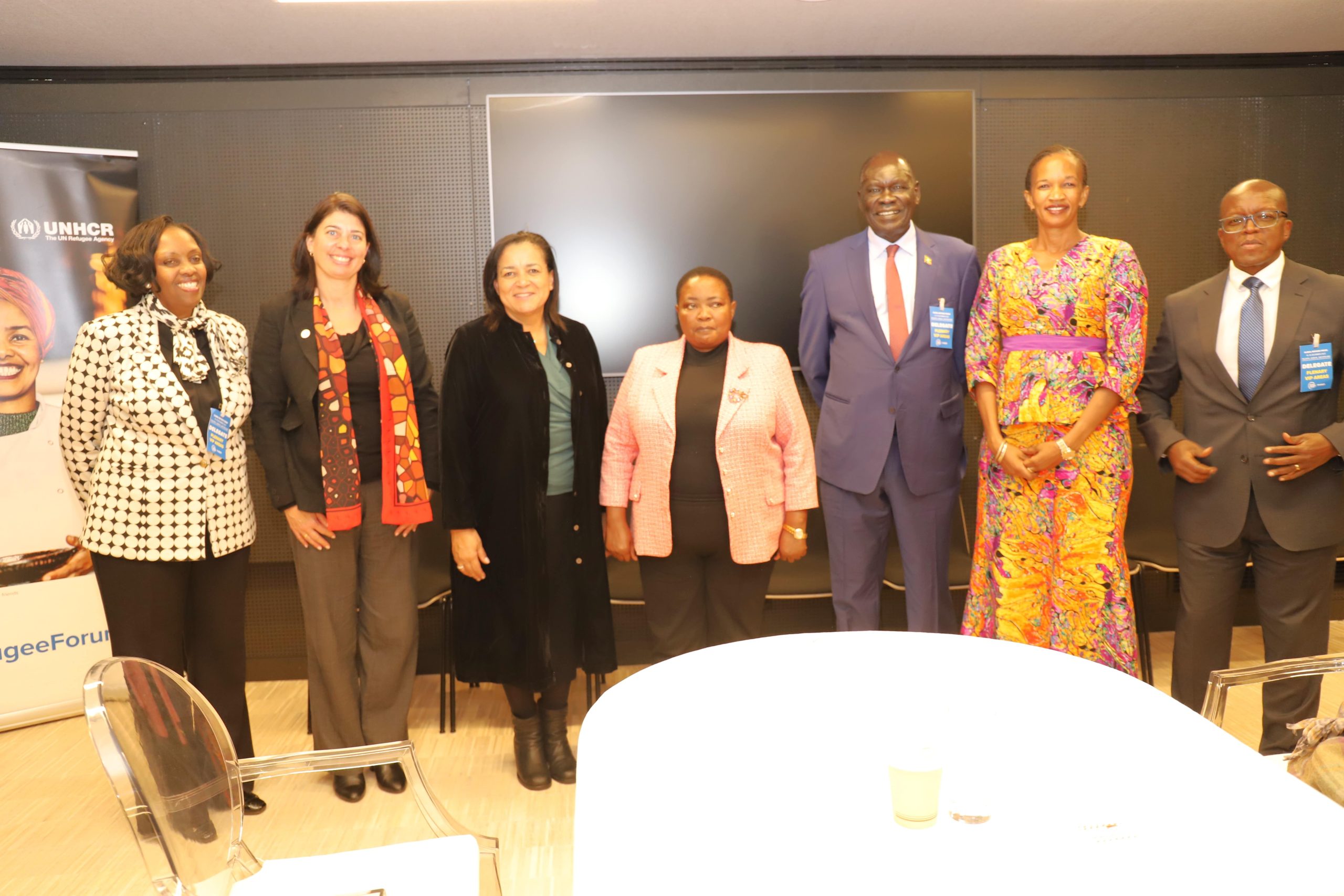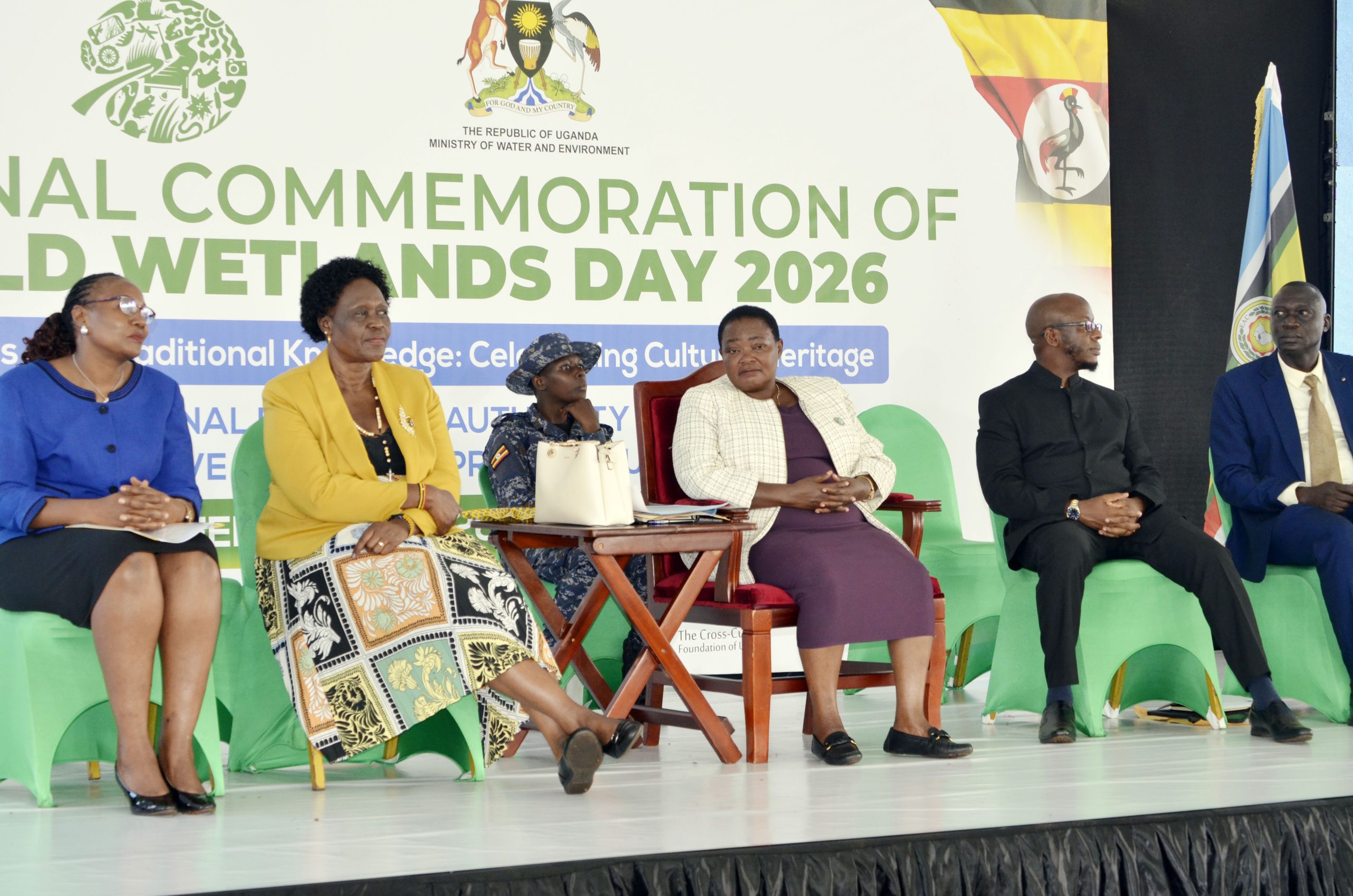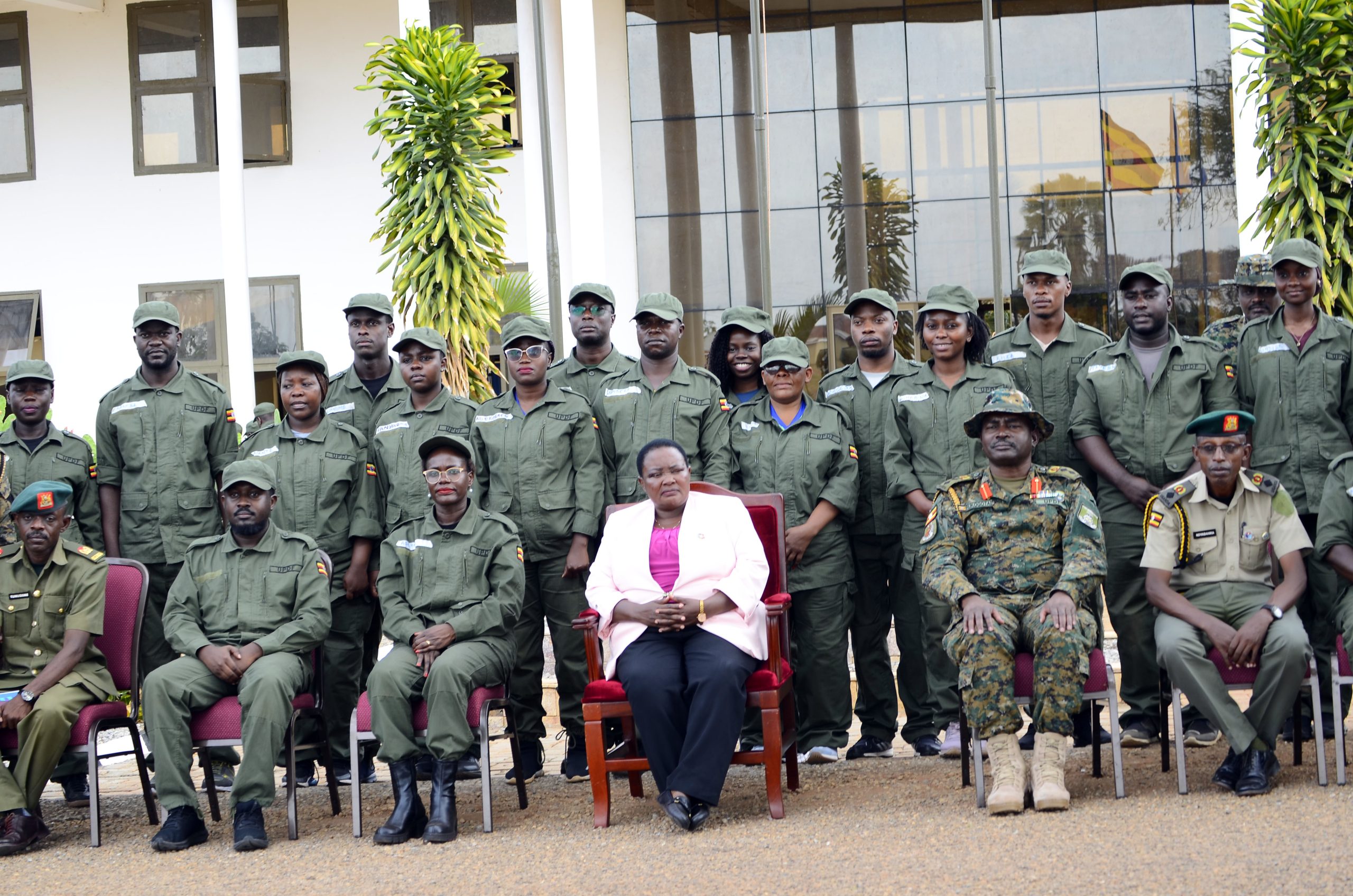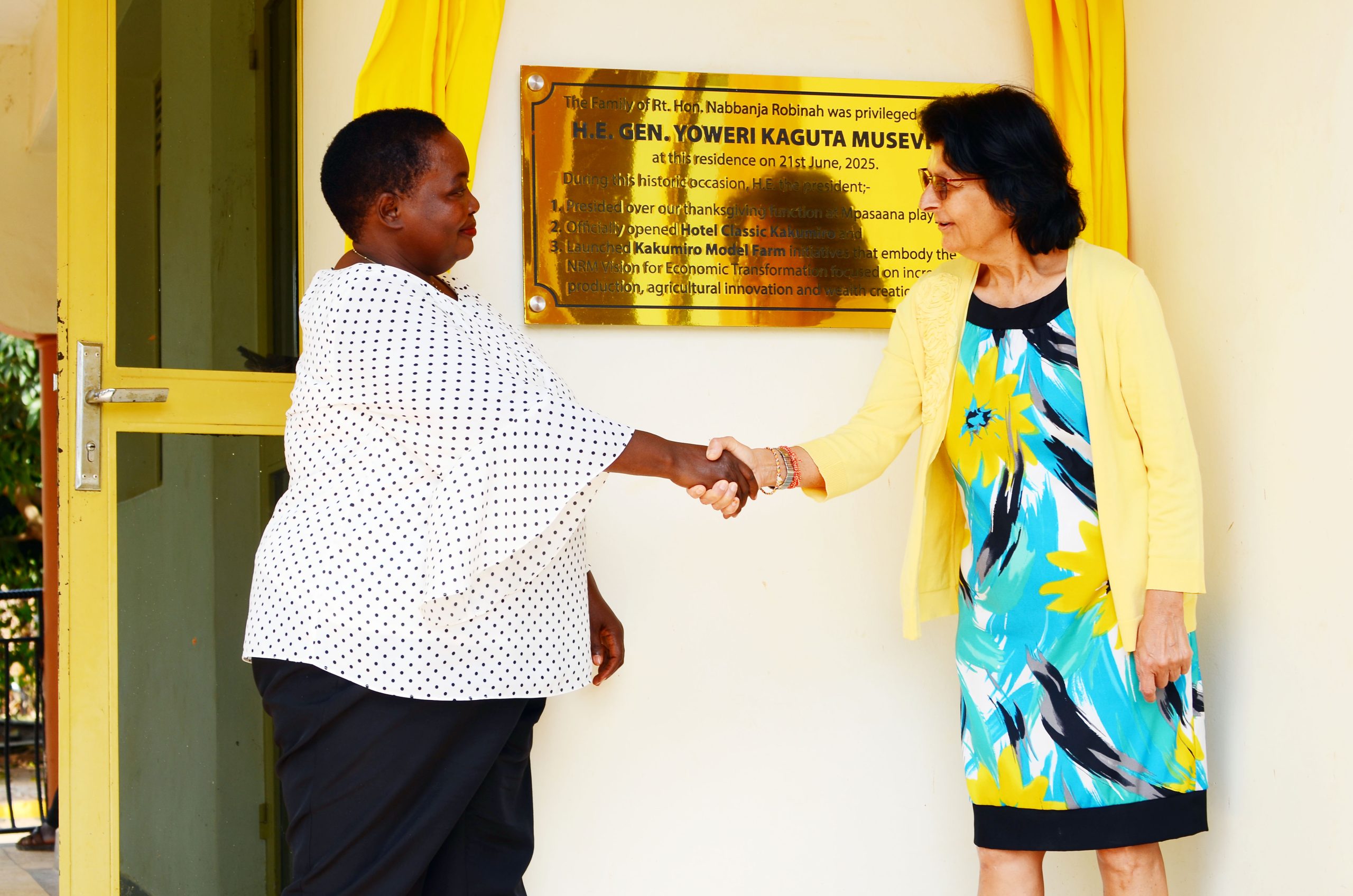By: Ismael Kasooha
GENEVA
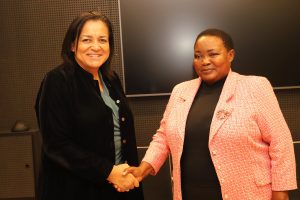
The Prime Minister Robinah Nabbanja (Right) shaking hands with the Deputy Executive Director Programme and Policy Development of the World Food Programme (WFP) Valerie Guarnieri in Geneva Switzerland
The Rt. Hon. Prime Minister Robinah Nabbanja has requested the UN World Food Programme (WFP) to buy the food it provides to refugees from Ugandans.
She made the request at a meeting with the Assistant Executive Director for Programme and Policy Development at WFP, Valerie Guarnieri, during the Global Refugee Forum that took place in Geneva between December 13 and 15 last year.
The meeting was also attended by the Minister for Relief, Disaster Preparedness and Refugees, Hon. Hilary Onek, the Minister of State for Relief, Disaster Preparedness and Refugees, Hon. Esther Anyakun, and the Deputy Head of Uganda’s mission in Geneva, Ambassador Arthur Kafeero.
By buying food from Ugandans, the Prime Minister said the WFP would be supporting the economy of a country which currently hosts the largest number of refugees on the African continent – over 1.6 million.
“Uganda has enough food, especially maize and beans to feed all the 1.6 million refugees that we are currently hosting.” Nabbanja said. “There is no reason why WFP should continue purchasing food from other countries,”
This, the Prime Minister said, would also cement the relations between Ugandans and refugees. During the same meeting, Onek appealed to the World Bank to support Uganda’s refugee response through grants instead of loans.
“Our country is grappling with loans acquired to take care of Refugees,” he added. “Why can’t the World Bank cancel these loans and also extend to us grants instead of loans?”
Guarnieri said that the WFP had started to buy food from Ugandans for the refugees. “I want you to assure the President that WFP has started to buy food from Ugandans, especially maize and beans,” she added. “We are only importing cooking oil and a few items that are still expensive to buy within the country,”
Guarnieri lauded Uganda’s progressive approach to refugees, saying the country is a shining example across the world. The Prime Minister also met with the Foreign Affairs Minister of Japan Yoko Kamikawa. The two discussed a wide range of bilateral issues.
END
